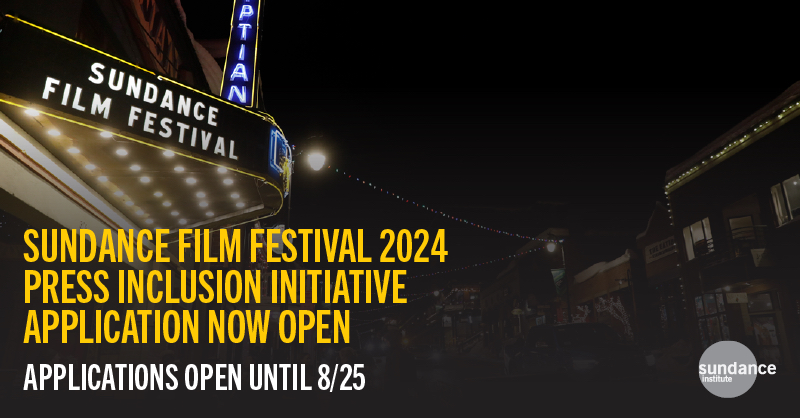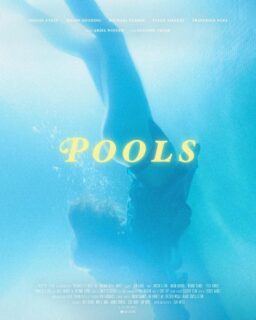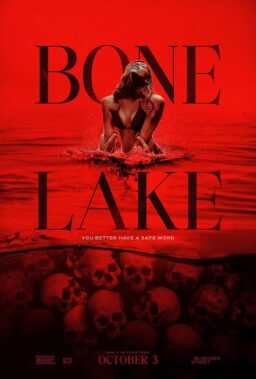I urge journalists from underrepresented communities: specifically, critics and writers who identify as BIPOC, women, LGBTQ+, and/or people with disabilities to apply for The Sundance Film Festival’s Press Inclusion Initiative, to attend and cover Sundance 2024. Those writers who are eligible and interested can apply here, after which they will receive a unique link to apply for accreditation to the festival. Both applications must be submitted by Friday, August 25th, at 6pm ET in order to be considered. Sundance 2024 runs from Thursday, January 18th, through Sunday, January 28th. Any eligible writers who have written to apply for the Ebert Fellows program at Sundance are also encouraged to apply here, to the Sundance Press Inclusion Initiative instead.
The rules state that by submitting a Press Inclusion Initiative form and Press Accreditation Application, applicants are being considered for two separate things. Regardless of whether they are selected to receive a stipend towards attending the festival in-person or online, they will be considered independently for a press credential at the festival. Press Accreditation Applications for Sundance 2024 will open Wednesday, August 23rd, which includes credentials for in-person and online accreditation and attendance.
I was privileged to serve on the inaugural External Review Panel for the Sundance Press Inclusion Initiative along with Franklin Leonard and a few others. As a result of this robust program, I ended the Ebert Scholars/ Fellowship program that was commemorated by Robert Redford in 2013, in honor of my late husband Roger. The first official Ebert Fellows class attended Sundance in 2014 and was mentored by me and Eric Kohn of IndieWire.
Eric’s mentorship was partially patterned after his Critics Academy he started at the Locarno Film Festival in Switzerland. The Ebert Fellows were also mentored by Brian Tallerico and other editors at RogerEbert.com. As our program grew, we made sure that a wide variety of voices and opinions could be shared. We provided writing mentorship and their articles were published at RogerEbert.com. We also provided housing, flights and meals for our Ebert Fellows. A core part of the program encouraged the application of one of four principles when observing or writing about the films and the festival: empathy, compassion, kindness and/or forgiveness.
The Sundance Press Inclusion Initiative was a much larger program, able to accept as many as 50 recipients at a time. I am not sure how many grants will be given this year, but the program has a far reach with generous donors. It is also operated under the principle that it is crucial to provide not only access to top tier credentials, but stipends to the attendees for lodging and flights and other expenses. It truly eliminates many obstacles in trying to establish a more level playing field. Because of the thriving nature of The Sundance program the Ebert Fellows at Sundance has been folded into it. The stand alone Ebert Fellowship program still exists at the University of Illinois in Champaign-Urbana. It is a year-round program operated by the College of Media.
“This is a busy time at Sundance, as we’re laying the foundation for the 2024 Festival — our 40th edition (and my first as Festival Director),” said Eugene Hernandez in a recent letter. “This is also a challenging moment as artists fight for a more equitable entertainment industry. We’re more passionate than ever about the importance of celebrating and protecting fiercely independent voices; finding, nurturing and supporting a diverse roster of art and artists; as well as spotlighting work that can entertain us while it challenges and moves us.”
For more information, send an e-mail to press@sundance.org.
You can learn all about our Ebert Scholars/Fellows from 2014, 2015, 2016, 2017, 2018 and 2019, as well as read some of their coverage of Sundance here.












